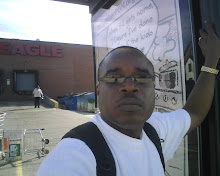It is hard to see these videos of BP live underwater feed about the emerging oil spill in the Gulf of Mexico and not cringe. How did we let this happen?
Rosenthal, Boin & Comfort (2001) experts in crisis management research wrote about the Piper Alpha disaster in the North Sea, 110 miles off the coast of Scotland. This disaster was triggered by a series of explosions, fire, the rupture of the pipeline carrying gas and oil to a nearby Texaco pipeline, and the eventual collapse of that platform. Of the 226 workers on the platform that day only 61 survived. The eerily similar malfunction of safety valves or apparatuses in the underwater pumps, indicates we should have been aware of what could go wrong. The Exxon Valdez oil spill and the eventual disaster it triggered in Prince William sound should have been a stark reminder as well of what was possible.
There is enough blame to go around but to me, accountability should be to those who had responsibility for oversight, event though BP and no one else should foot the bill, every penny of it. There are so few apparatuses to assist in correction should there have been a disaster, given the depth at which the drilling was taking place. Moreover, because human access at such great depth is so limited, prevention had to be the key. Preventing or at least mitigating such a disaster required that the protections were in place and functioning.
These protections should have included quarterly testing of emergency systems under the supervision of independent but government appointed overseers - those systems designed to shut down the drilling in the event of a malfunction. Quarterly spot checks of the platforms including interviews with workers on these platforms should have been conducted. It is clear that workers were aware that the system had flaws. Under water video feeds must also be monitored by the oversight agency. Strict deadlines should be given for addressing any problems with strict sanctions including closure of platform until those problems are resolved. It is not clear how soon the current spill can be curtailed. In the meantime, the other platforms should be tested, monitored or closed until they have been deemed safe.
The difficulty with the Gulf oil spill is the fact that there were others we could have learnt from. There was evidence of what was possible and frankly we may have have been presumptious. Mike Williams interview with Scott Pelley on CBS's 60 minutes on May 16, clearly shows that there was evidence of a problem, and had there been adequate oversight or at least mechanisms for reporting such concerns to an oversight agency, we could have averted the problem.
While we wait for BP to invent equipment and strategies to stop the oil spill, this may be a good time to look at all deep water platform. Our fragile ecology may not be able to withstand another spill, given that this was the deemed the "safest platform" in BP's fleet.
Friday, May 21, 2010
Subscribe to:
Post Comments (Atom)

No comments:
Post a Comment